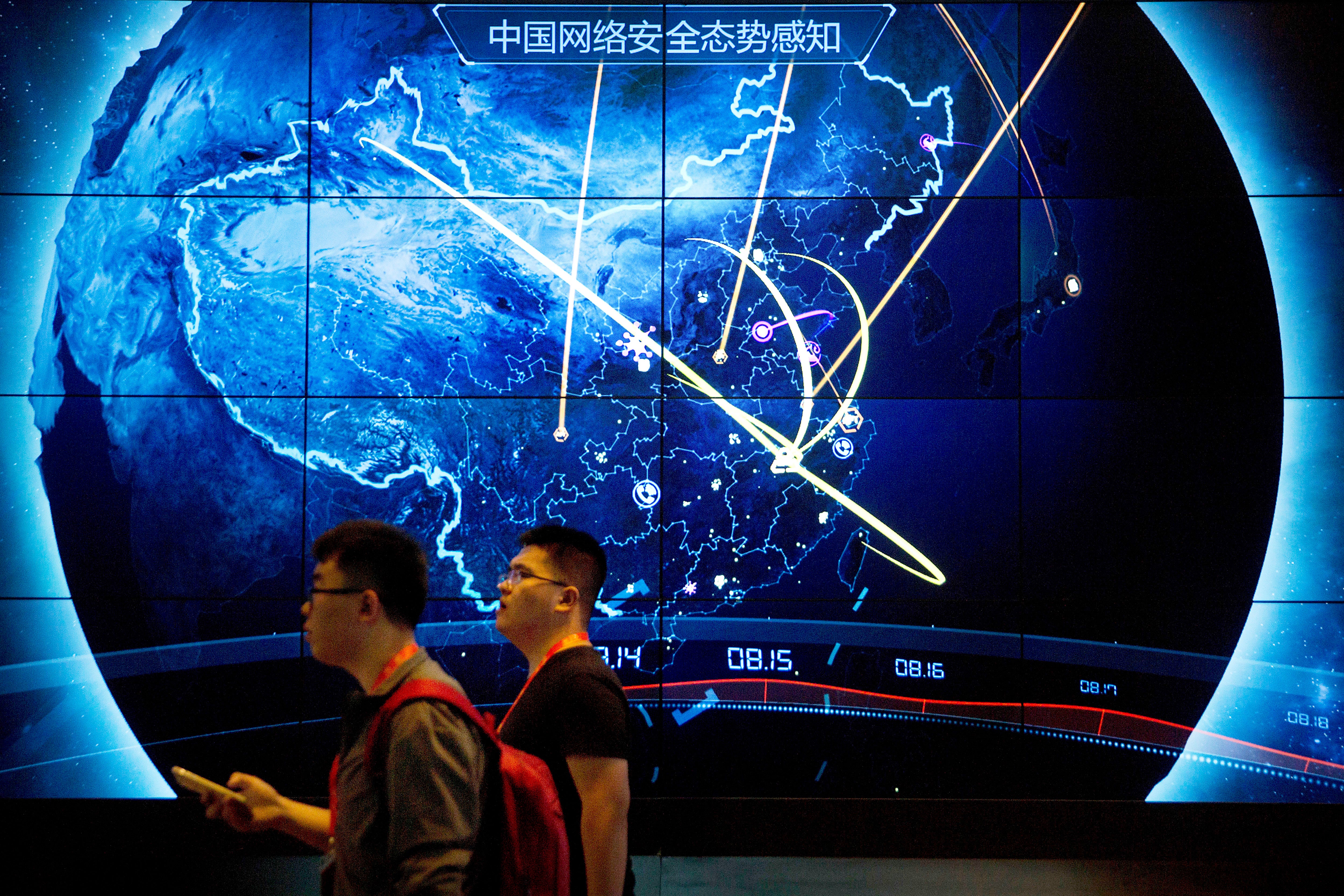World Economic Forum warns cyber risks add to climate threat
The World Economic Forum says cybersecurity and space are emerging risks to the global economy, on top of existing challenges posed by climate change and the coronavirus pandemic

Your support helps us to tell the story
From reproductive rights to climate change to Big Tech, The Independent is on the ground when the story is developing. Whether it's investigating the financials of Elon Musk's pro-Trump PAC or producing our latest documentary, 'The A Word', which shines a light on the American women fighting for reproductive rights, we know how important it is to parse out the facts from the messaging.
At such a critical moment in US history, we need reporters on the ground. Your donation allows us to keep sending journalists to speak to both sides of the story.
The Independent is trusted by Americans across the entire political spectrum. And unlike many other quality news outlets, we choose not to lock Americans out of our reporting and analysis with paywalls. We believe quality journalism should be available to everyone, paid for by those who can afford it.
Your support makes all the difference.Cybersecurity and space are emerging risks to the global economy, adding to existing challenges posed by climate change and the coronavirus pandemic, the World Economic Forum said in a report Tuesday.
The Global Risks Report is usually released ahead of the annual elite winter gathering of CEOs and world leaders in the Swiss ski resort of Davos but the event has been postponed for a second year in a row because of COVID-19. The World Economic Forum still plans some virtual sessions next week.
Here's a rundown of the report, which is based on a survey of about 1,000 experts and leaders:
WORLD OUTLOOK
As 2022 begins, the pandemic and its economic and societal impact still pose a “critical threat” to the world, the report said. Big differences between rich and poor nations’ access to vaccines mean their economies are recovering at uneven rates, which could widen social divisions and heighten geopolitical tensions.
By 2024, the global economy is forecast to be 2.3% smaller than it would have been without the pandemic. But that masks the different rates of growth between developing nations, whose economies are forecast to be 5.5% smaller than before the pandemic, and rich countries, which are expected to expand 0.9%.
DIGITAL DANGERS
The pandemic forced a huge shift — requiring many people to work or attend class from home and giving rise to an exploding number of online platforms and devices to aid a transformation that has dramatically increased security risks, the report said.
“We're at the point now where cyberthreats are growing faster than our ability to effectively prevent and manage them," said Carolina Klint, a risk management leader at Marsh, whose parent company Marsh McLennan co-authored the report with Zurich Insurance Group.
Cyberattacks are becoming more aggressive and widespread, as criminals use tougher tactics to go after more vulnerable targets, the report said. Malware and ransomware attacks have boomed, while the rise of cryptocurrencies makes it easy for online criminals to hide payments they have collected.
While those responding to the survey cited cybersecurity threats as a short- and medium-term risk, Klint said the report's authors were concerned that the issue wasn't ranked higher, suggesting it's a “blind spot” for companies and governments.
SPACE RACE
Space is the final frontier — for risk.
Falling costs for launch technology has led to a new space race between companies and governments. Last year, Amazon founder Jeff Bezos' space tourism venture Blue Origin and Virgin Galactic's Richard Branson took off, while Elon Musk's Space X business made big gains in launching astronauts and satellites.
Meanwhile, a host of countries are beefing up their space programs as they chase geopolitical and military power or scientific and commercial gains, the report said.
But all these programs raise the risk of frictions in orbit.
“Increased exploitation of these orbits carries the risk of congestion, an increase in debris and the possibility of collisions in a realm with few governance structures to mitigate new threats," the report said.
Space exploitation is one of the areas that respondents thought had among the least amount of international collaboration to deal with the challenges.
CLIMATE CRISIS
The environment remains the biggest long-term worry.
The planet's health over the next decade is the dominant concern, according to survey respondents, who cited failure to act on climate change, extreme weather, and loss of biodiversity as the top three risks.
The report noted that different countries are taking different approaches, with some moving faster to adopt a zero-carbon model than others. Both approaches come with downsides. While moving slowly could radicalize more people who think the government isn't acting urgently, a faster shift away from carbon intense industries could spark economic turmoil and throw millions out of work.
“Adopting hasty environmental policies could also have unintended consequences for nature," the report added. “There are still many unknown risks from deploying untested biotechnical and geoengineering technologies."